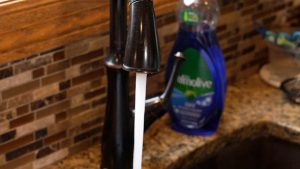Celebrate SepticSmart Week by doing routine maintenance and identifying harmful products before they go down the drain
September 18th, 2024 by Ric Hanson
DES MOINES – Fall is a great time for one in four Iowans to take a few simple steps to protect their pocket books, their septic systems and Iowa’s waters. The Iowa DNR is encouraging Iowans with septic systems to celebrate SepticSmart Week, Sept.16 to 24, a nationwide campaign sponsored by the U.S. Environmental Protection Agency.
Septic failures are most likely to occur when they’re neglected, and failures are costly. Routine inspections and maintenance may reduce those future costs. In addition to routine maintenance, Iowans can help by examining their own septic habits. Identifying harmful products before they go down the drain will lead to improved water quality, better health, and save homeowners money and a lot of heartache.
“Everything we put down the drain has an impact on our septic system’s health,” says Cory Frank, the Iowa DNR On-site Wastewater Coordinator. “Dishwasher pods, liquid drain cleaners, even the type of toilet paper you use can cause significant damage to your system and the environment, and potentially cost you thousands of dollars.”

Performing routine septic system maintenance and identifying harmful products before they go down the drain will lead to improved water quality, better health, and save homeowners money.
The EPA offers six simple tips to keep your system performing optimally:
- Don’t Strain your Drain—use water efficiently and stagger washing, dishwashing and other high water uses.
- Think at the Sink—avoid pouring fats, solids and harsh chemicals down the drain.
- Don’t Overload the Commode—flush only toilet paper, not tissues, wipes, paper towels, pet litter or any other trash.
- Shield your Field—no parking and no tree planting keeps septic fields functioning.
- Pump your Tank—follow your professional’s recommendations.
- Protect it and Inspect it—service the system every one to three years.
You can find additional information on septic system operations, maintenance, and water quality resources at iowadnr.gov/septic, and also on the SepticSmart website.





